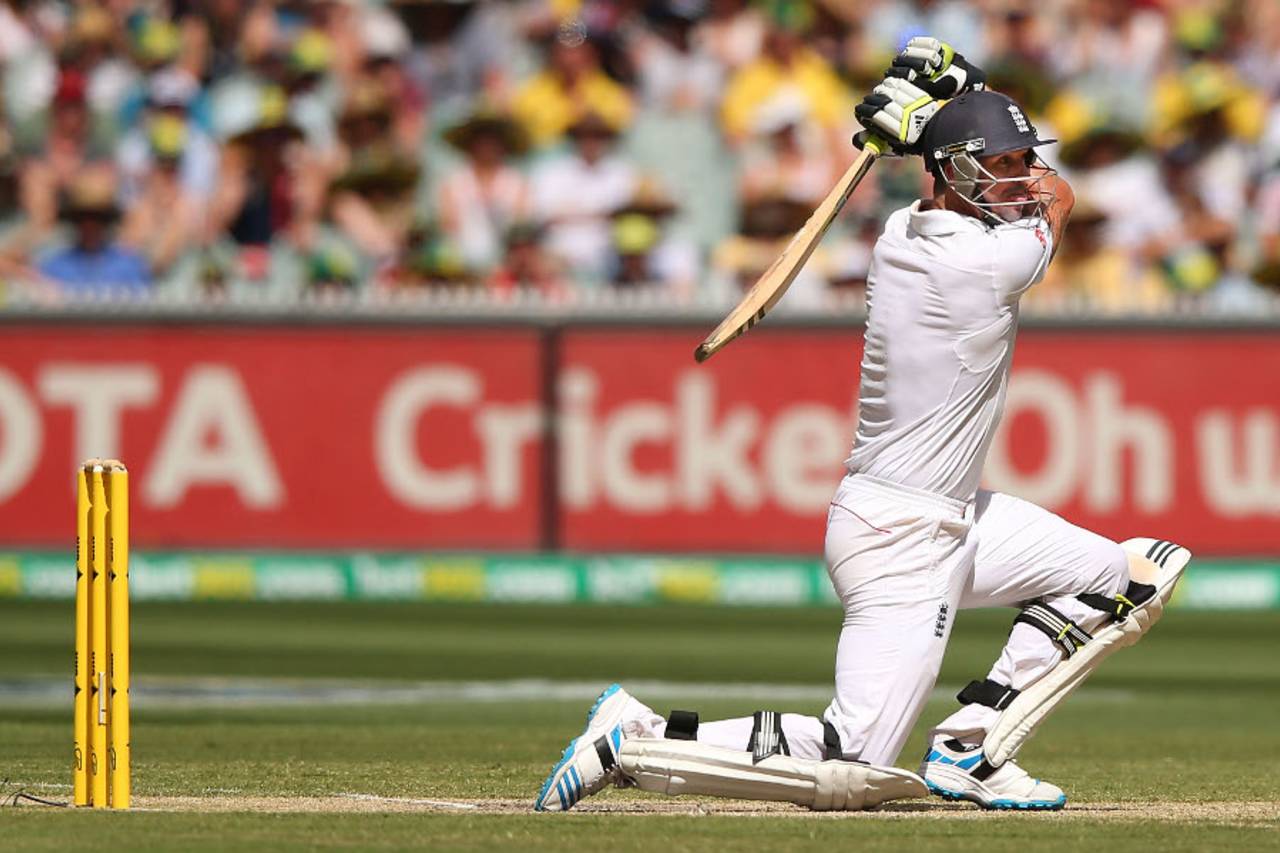The ECB's vagueness problem
All that we know for certain is that Pietersen is out. The rest is a blurry collage of noncommittal sentences
Alex Bowden
06-Feb-2014

Did he give his team-mates wedgies in the shower? Did he ask for the dressing room to be declared a blue-M&M-free zone? • Getty Images
Nature abhors a vacuum, but the ECB does not. It has created one in the middle order and another in public discourse. Facts about Kevin Pietersen's sacking are hard to come by. Omerta is in effect, and so fans are left to piece together a blurry collage using sentences culled from various articles, all of which begin "it is said… " or "there is a belief… "
How many horror films have been terrifying when you didn't know what you were even scared about, only to fall flat when the big revelation came? "Oh, it's just a giant spider. Ho hum." In the absence of detail, people's imaginations fill in the gaps with something that is invariably more extreme and powerful than the truth.
The vagueness surrounding Pietersen's departure encourages conjecture. In fact, considering who's involved, it positively demands it. But it can go both ways such that a guy who's clearly a right pain to work with is now starting to look like some kind of martyr. This is quite some achievement by the England and Wales Cricket Board.
Rumours say that Pietersen was a bad influence on younger players. Going by recent results, so too, you could argue, were the coaches, captain and other support staff. As England's top run scorer of the recent Ashes series and the country's highest scorer of all time, across all formats, KP appeared to know a thing or two. Perhaps he didn't have enough influence.
Being "high maintenance" is another of the charges; one which conjures images of diva-like behaviour. Back in the day, Pakistan would indulge Inzamam-ul-Haq by allowing him to spend most of their net sessions reclining in a rattan chair. As long as he batted like a prince whenever he came to the crease, they didn't much care. Pietersen is a similarly exceptional batsman, so why not meet all of his demands? They must have been extraordinary. The point is, without detail, we can conclude pretty much anything. All that we know for certain is that he's out. So what are England fans left with?
"Everyone was aware that there was a need to begin the long-term planning after the Australia tour. Therefore we have decided the time is right to look to the future and start to rebuild not only the team but also team ethic and philosophy," said Paul Downton, the managing director of England cricket.
The long term. The future. Rebuilding. The implication is that everything will be okay further down the line, which is invariably true if you wait long enough.
Long-term decisions are, of course, the easiest ones to make because you don't have to defend yourself in the short term - particularly when no one's in on the details. In fact you can hold critics at bay almost indefinitely. "No, it's not the long term yet. This is still only the medium term. This is a transitional period."
To gain some notion of what might be in store for England fans, let's look at another example of long-term planning that involved a senior player being discarded. Australia embarked on a period of "rebuilding" back in 2011 when they ejected Simon Katich from the team.
It's well known that Katich didn't exactly see eye to eye with Michael Clarke, except when grappling with him in the dressing room and it is generally accepted that this relationship played at least some part in his departure. Cricket-wise, he was arguably Australia's best-performing player at that time. How did things pan out?
Looking back on Katich's axing a few months ago, the chairman of Cricket Australia, Wally Edwards, admitted it was a mistake. He said the decision had been "an attempt to move from a very strong side to a new side", which seems an odd journey to try to take.
Katich's departure marked the start of an extended period of Australia being rubbish and this only really came to an end at the end of 2013. Young whippersnappers such as Chris Rogers, Mitchell Johnson, Ryan Harris, Brad Haddin and others are the bedrock on which the new Australian side has been built. Looking to the future and embracing youth clearly reaped dividends.
Alex Bowden blogs at King Cricket